DWFI is recognized for its expertise in the sustainable scaling and development of productive smallholder agriculture. This includes research in water management, as well as the ecosystems of policy, finance, and business that enable smallholder farming to thrive. Through collaborations and strategic partnerships, DWFI supports the development of agricultural climate resiliency among the most vulnerable; provides capacity building and professional development to local partners; creates new equitable livelihood opportunities; and increases nutritional security at the household, community and national levels.
Smallholder agricultural water management
New three-year grant expands irrigation access for small scale farmers
DWFI was awarded a $3.5 million grant from the Gates Foundation in December 2024. The grant is focused on expanding the reach and impact of Irrigation as a Service (IaaS) for small scale farmers in Sub-Saharan Africa. IaaS offers a promising solution to increase irrigation adoption among small scale farmers by providing water access without requiring them to invest in equipment. This project investigates critical factors affecting the scalability and sustainability of IaaS, including business model analysis, value chain engagement, pilot projects, and a development impact assessment. The goal is to inform strategic investments in targeted regions and contribute to improving food security and reducing climate-related agricultural risks.
Team members on the Gates Foundation project visited Ghana in March 2025 to engage in field visits and meetings. Partners included the International Food Policy Research Institute (IFPRI); International Water Management Institute (IWMI); and other DWFI researchers and contracted consultants. Activities over the six days included a three-day workshop to understand and integrate project activities, including suitability mapping (led by IWMI); analysis of development outcomes (led by IFPRI); and financial and business analysis of IaaS enterprises (led by DWFI). Field visits to northern Ghana allowed interaction with several enterprises and their smallholder farmer customers, including a women farmers’ cooperative.
Other fieldwork related to this grant has taken place in India, Rwanda, and Uganda. The team also met with partners and donors during the Water for Food Global Conference.
Uganda learning route advances understanding of Irrigation as a Service
DWFI led a learning route in Uganda, focused on Irrigation as a Service (IaaS) for smallholder farmers and with the goal of understanding its potential and challenges, in January 2025. The learning route included site visits to farms using IaaS solutions like Pay-N-Pump and Agriworks, as well as discussions with nine IaaS company founders from seven different countries. This was the largest gathering of IaaS companies that has occurred. The event served as a learning platform for the companies, as well as to facilitate collaborations and for strategic discussions. The event highlighted the importance of local context, unit economics, financial strategies, and data in measuring the impact of IaaS models.
IaaS refers to business models where farmers access irrigation equipment and services without outright ownership, often through rental or pay-per-use schemes. IaaS can offer several advantages to smallholder farmers, including increased productivity, reduced risk and improved incomes for farmers. However barriers can include high upfront costs, limited access to reliable water sources and electricity, and challenges with long-term viability and scalability.
The group also discussed potential ways to work with value chain and other partners, including opportunities around collected operational data. Alongside these insights, the workshop facilitated peer-to-peer learning, network building, and discussions on business models, financial mechanisms, and technological advancements. These outcomes will directly inform current and future DWFI research as well as broader initiatives to unlock IaaS’s full potential for improving agricultural productivity and food security in the Global South.
-
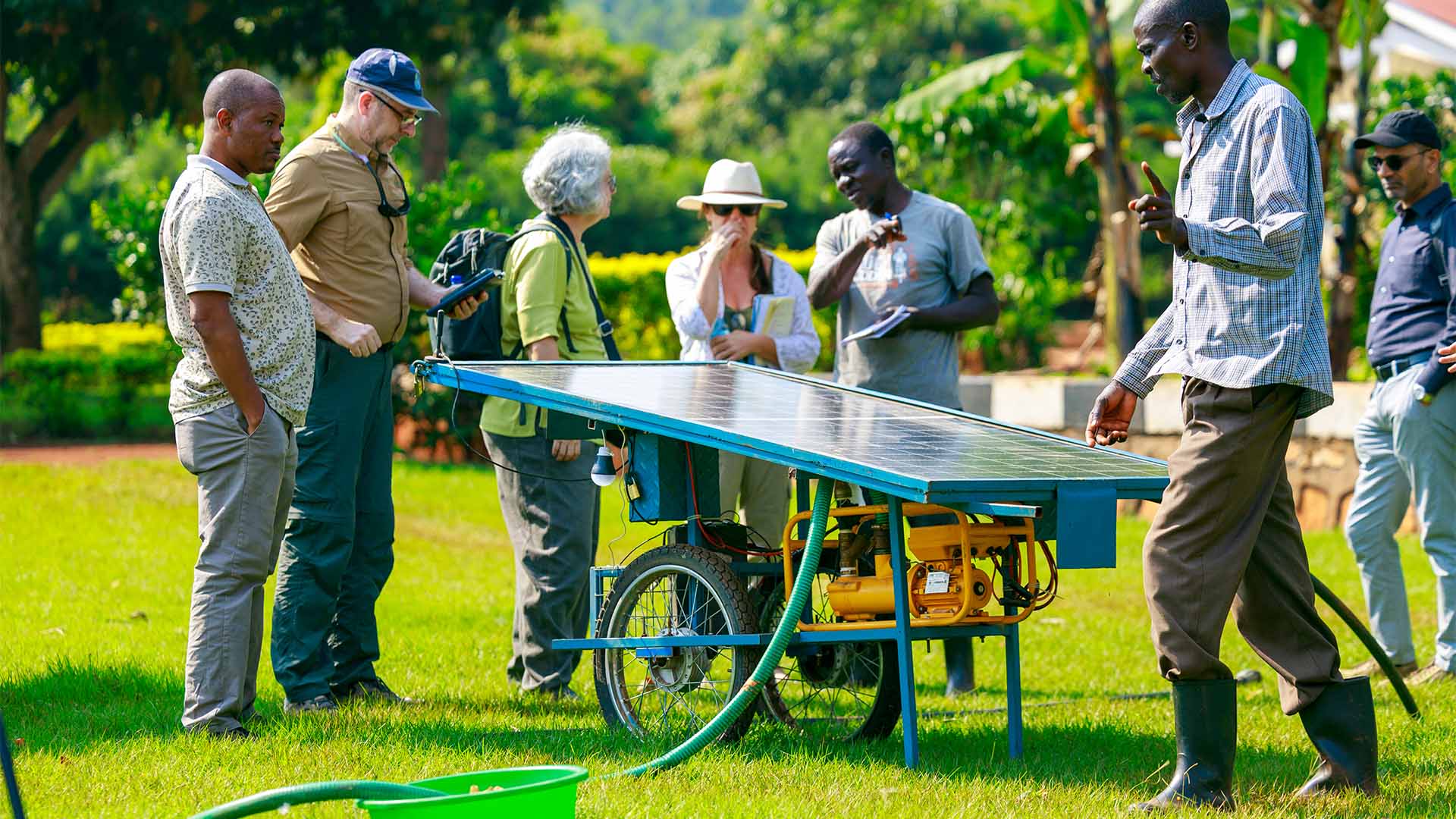
Participants in the learning route visit farms using Irrigation as a Service solutions. Credit: DWFI.
-
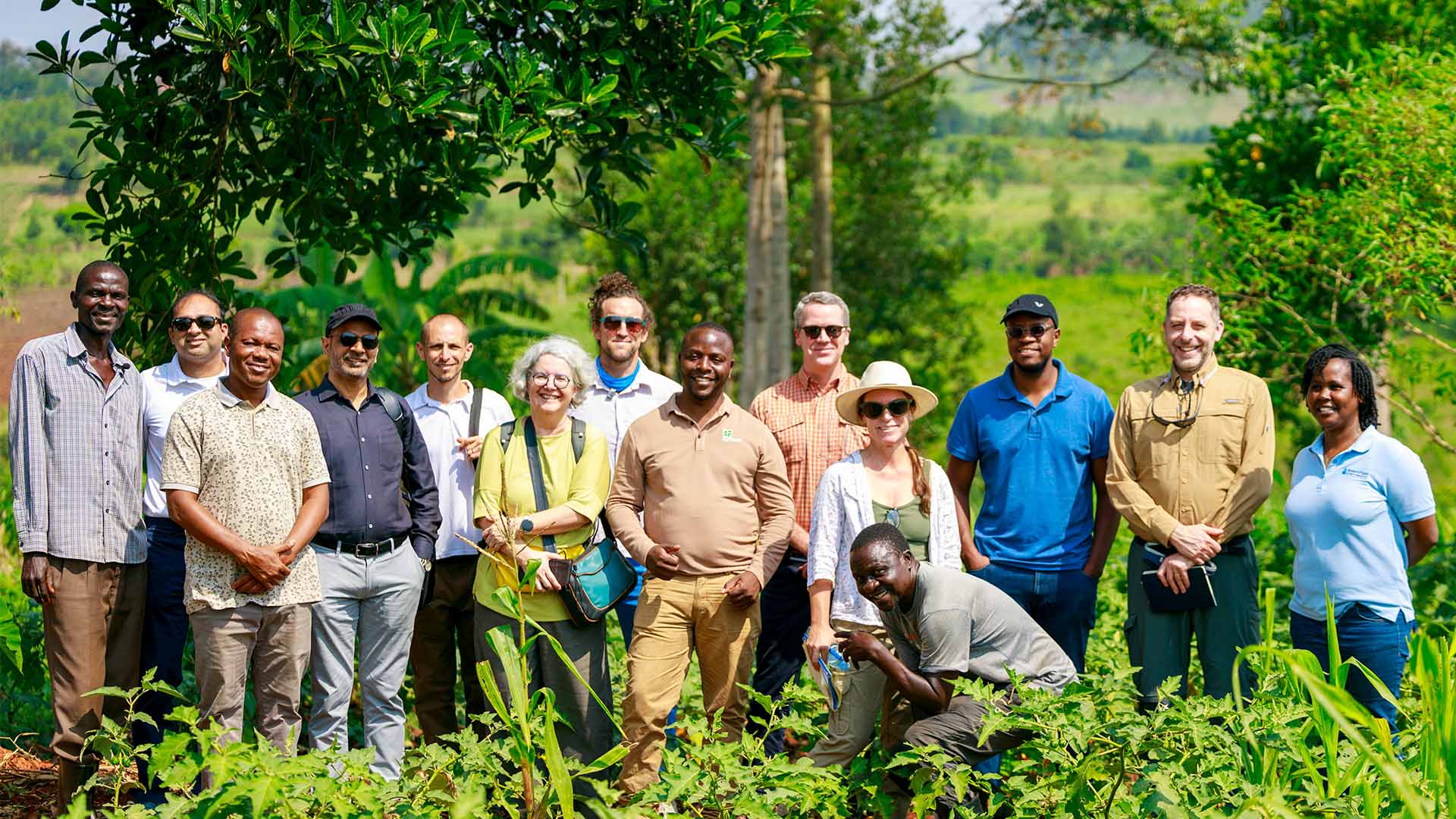
Participants in the learning route visit farms using Irrigation as a Service solutions. Credit: DWFI.
-
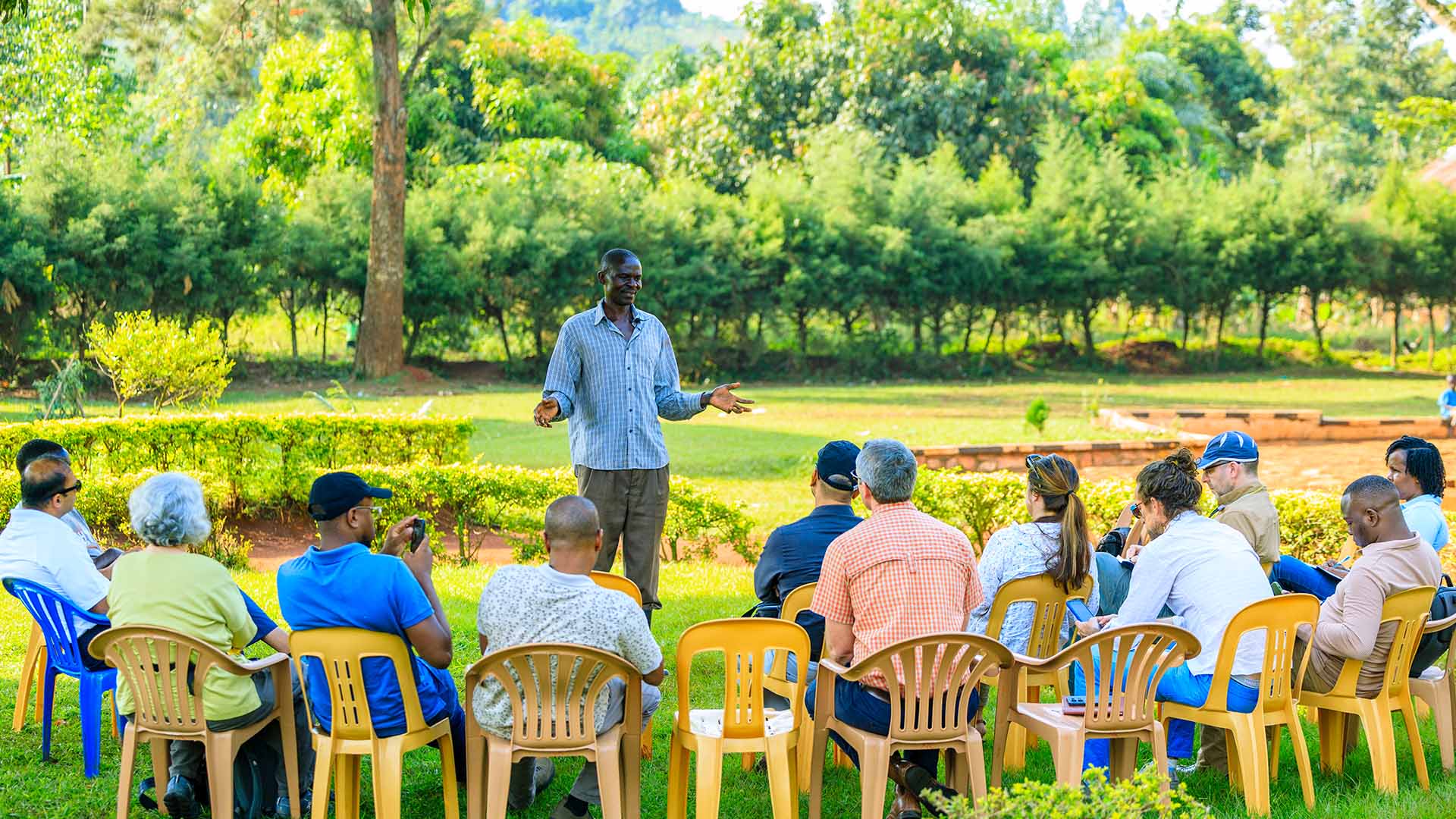
Participants in the learning route visit farms using Irrigation as a Service solutions. Credit: DWFI.
-
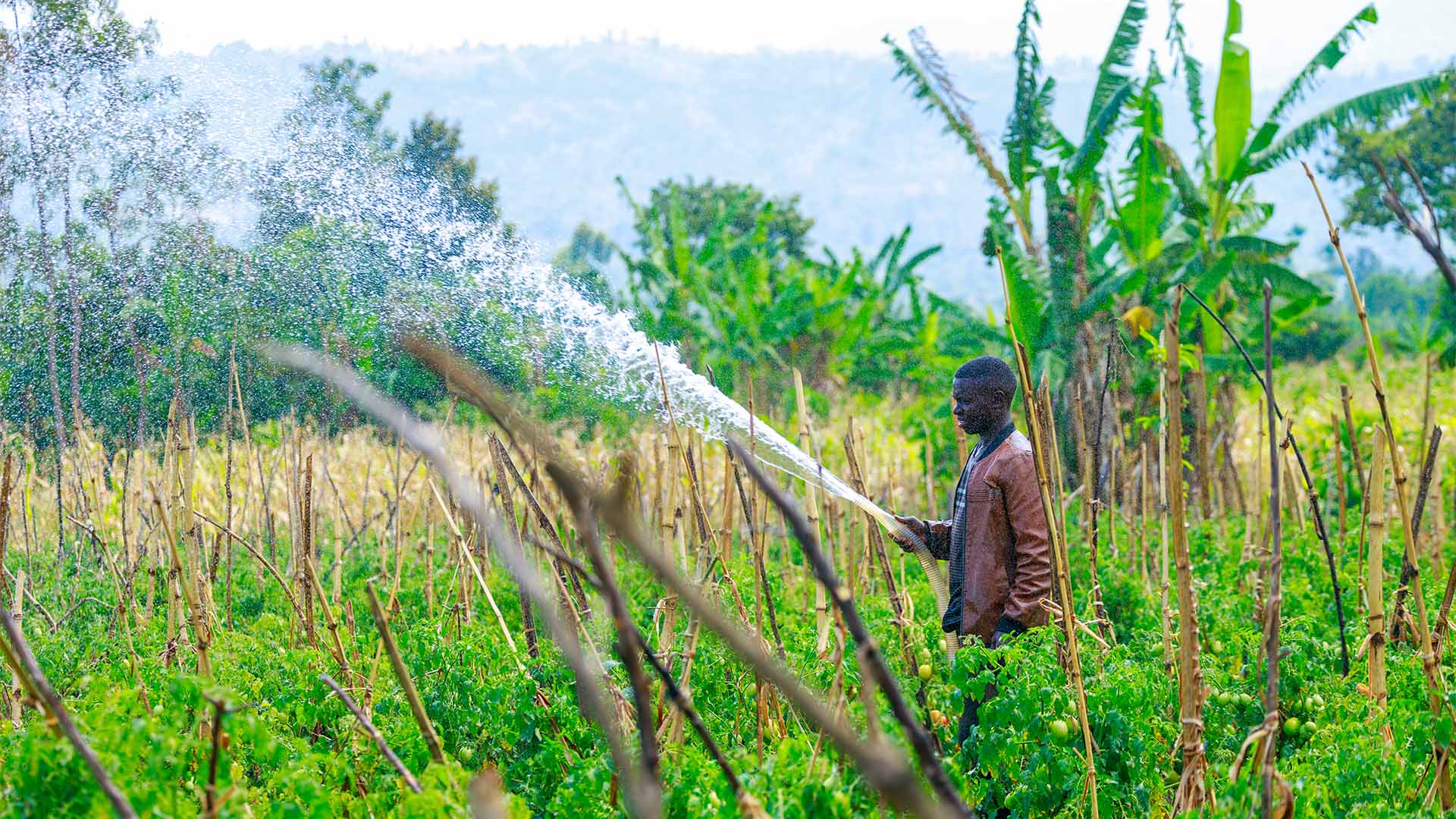
Participants in the learning route visit farms using Irrigation as a Service solutions. Credit: DWFI.
New reports explore costs and scalability of Irrigation as a Service business models
Two recent DWFI reports provide insights into scalable and sustainable irrigation solutions for smallholder farmers.
Unit economics refers to the revenues and costs of delivering a single unit of a good or service. "The Unit Economics of Irrigation as a Service" report provides insight into the unit economics of irrigation as a service (IaaS), in which farmers can access irrigation equipment and services without owning it outright. The report analyzes diverse IaaS approaches, including those adopted by entrepreneurial farmers, multisided market makers, and dealer subsidiaries. It offers a framework for understanding how these services can achieve both financial viability and broader reach.
An additional DWFI report, the “Pay-N-Pump Business Model Canvas,” offers an in-depth look at one of these approaches. Pay-N-Pump is an innovative irrigation service provider that offers long-term rentals of solar pumps and mobile irrigation kits, overcoming capital limitations. By combining reliable solar tech, local community engagement, and efficient logistics, Pay-N-Pump makes irrigation–and its benefits–more accessible and affordable for smallholder farmers.
This research informs future investments and strategic collaborations by analyzing various irrigation solutions and complements DWFI’s other IaaS-focused work.
DWFI leads workshop for ag and climate tech startups focused on smallholder water stewardship
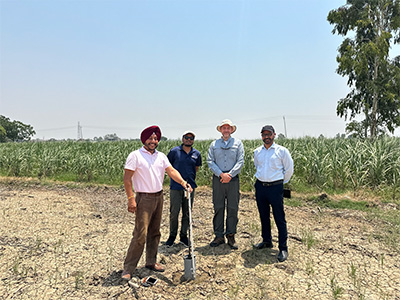
DWFI co-hosted a workshop in India focused on building impact narratives and growth strategies for agtech startups. The workshop, part of The/Nudge Institute and DCM Shriram's AgWater Challenge, engaged 10 water-focused agtech companies in discussions about business models, data strategies, and creating compelling narratives around environmental impact. A roundtable with ecosystem partners highlighted challenges in agtech, particularly customer acquisition and distribution. Ecosystem partners expressed willingness to collaborate on extending the distribution network for startups with the support of public and government initiatives. Such collaborative efforts may address key barriers and enhance the reach and impact of these innovations. Moving forward, DWFI plans to support the startups by offering networking opportunities and facilitating conversations with university researchers and the entrepreneurial ecosystem. Through these efforts, we hope to further strengthen the growing agtech ecosystem.
DWFI also conducted field visits with three startups to observe their innovative solutions for agricultural water management. These startups are using technology like drones and IoT sensors to simplify operations for farmers and provide actionable insights.
Improving irrigation management in the Dominican Republic using satellite imagery
A project in the Dominican Republic, involving DWFI and Pontificia Universidad Católica Madre y Maestra (PUCMM), a university in the Dominican Republic, has been completed and the final report submitted to Instituto Nacional de Recursos Hidráulicos (INDRHI), the national federal water agency of the Dominican Republic. This project utilized high-resolution satellite imagery to map smallholder irrigated properties and update an existing database from the early 2000s used by water user associations to manage water and assess fees. Fieldwork, including boundary confirmation and farmer interviews, has also been conducted to gather further data on water users and irrigation infrastructure for the database
Accurate property boundaries are critical for effective water governance and policy implementation. By ensuring the correct assignment of water rights and usage, the project supports fair water distribution and helps water management agencies monitor usage and enforce regulations. This work contributes to the efficient and fair use of water resources in agriculture. Additionally, water user associations rely on fees from producers, which are proportional to their irrigated area, making accurate measurement of irrigated area essential for assessing fees and funding the association’s operation and maintenance of the irrigation system.
Smallholder agricultural water
- New Grant to Expand Irrigation Access for Small Scale Farmers
- Building Resilience: Scaling Irrigation and Mechanization for Smallholder Farmers in Central America
- DWFI leads workshop for ag and climate tech startups focused on smallholder water stewardship with DCM Shriram AgWater Challenge
- DWFI hosts international delegation to share drought resilience strategies
- Empowering Communities The Role of Cooperative Leadership
Top image caption
DWFI hosted a learning route focused on irrigation as a service in Uganda.
Credit: DWFI
COOKIE USAGE:
The University of Nebraska System uses cookies to give you the best online experience. By clicking "I Agree" and/or continuing to use this website without adjusting your browser settings, you accept the use of cookies.

